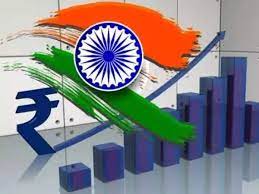
India’s Strategic Growth: Balancing Economic Power and Democratic Values
- admin
- October 25, 2025
- Development, Economy
- 0 Comments
New Delhi, India, 2025 — As India rises as a global economic powerhouse, the challenge of balancing rapid economic growth with its democratic principles has become increasingly critical. With a $3.73 trillion economy and an annual GDP growth rate of 6.8% (World Bank, 2024), the nation is navigating the fine line between fostering prosperity and ensuring inclusivity.
This balancing act was the focus of the recently concluded India Economic and Democracy Summit 2025, where policymakers and global leaders highlighted the importance of maintaining democratic accountability while driving economic transformation.
India’s Economic Power: A Force to Reckon With
Record FDI Inflows
India continues to attract significant foreign investment, establishing itself as a key player in the global economy.
- Data: Foreign Direct Investment (FDI) inflows reached $84 billion in 2024, with top sectors being technology, manufacturing, and renewable energy (Ministry of Commerce and Industry).
- Significance: These investments bolster India’s infrastructure and create millions of jobs annually.
Infrastructure Development Push
The Indian government’s focus on infrastructure is accelerating growth across industries.
- Report: The Union Budget 2025 allocated ₹10 lakh crore for major infrastructure projects, including highways, smart cities, and green energy corridors.
- Outcome: These initiatives aim to connect underserved regions and strengthen industrial output.
Start-Up Ecosystem on the Rise
India’s dynamic start-up ecosystem is redefining global markets.
- Fact: With over 100 unicorns, the Indian start-up sector secured $42 billion in funding in 2024, showcasing its innovation potential (Startup India, 2025).
Challenges to Democratic Values Amid Growth
Economic Inequality
Rising wealth disparities continue to test India’s democratic ideals.
- Report: Oxfam India’s 2024 report revealed that the top 1% of Indians control 40.5% of the nation’s wealth, while the bottom 50% holds just 3%.
- Implication: Such disparities undermine equal opportunities and exacerbate social tensions.
Pressure on Democratic Institutions
Economic expansion often brings challenges to institutional independence.
- Observation: Concerns have been raised about the influence of corporate lobbying on policy-making, potentially eroding public trust in democratic governance.
Environmental Trade-Offs
Rapid industrialization threatens India’s environmental sustainability.
- Data: Despite its renewable energy targets, India remains the third-largest emitter of greenhouse gases globally (UNEP, 2024).
Global Lessons on Balancing Growth and Democracy
Scandinavian Models of Welfare and Growth
Countries like Sweden demonstrate that economic prosperity can coexist with robust social safety nets.
- Insight: Investing in public services ensures equitable growth while maintaining democratic accountability.
China’s Infrastructure Focus
China’s state-led economic growth highlights the importance of public investment.
- Takeaway: Public-private partnerships could help India achieve balanced development without compromising democratic freedoms.
Way Forward: A Dual Strategy for India
1. Strengthening Democratic Institutions
- Reinforce the autonomy of key institutions like the judiciary, Election Commission, and media.
- Action: Implement stricter laws to prevent corporate interference in public policy.
2. Addressing Inequalities
- Expand welfare programs such as PM-KISAN and enhance rural infrastructure.
- Target: Reduce economic disparities to foster more inclusive growth.
3. Sustainable Development
- Accelerate green energy initiatives to balance industrial expansion with environmental conservation.
- Commitment: Ensure that renewable energy contributes 50% of the national energy mix by 2030.
Conclusion: A Delicate Balance
India’s dual focus on economic power and democratic values is shaping its global narrative. As the nation aspires to become a $5 trillion economy, the responsibility to maintain its democratic ethos remains paramount.
At the summit, experts agreed that inclusive policies, sustainable practices, and institutional integrity are essential for India’s future. By harmonizing growth with democratic principles, India is poised to offer a model for nations worldwide, demonstrating that economic prosperity and democratic governance can flourish together.



